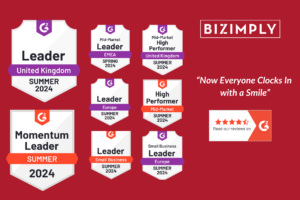Rises in Living and Minimum Wages: What is the Impact and What Can You Do?
Almost 3 million workers in Britain are to receive a pay rise of more than four times the rate of inflation from April. The national living wage for over-25s will increase 6.2% from £8.21 to £8.72.
Ever since the minimum wage was first introduced 20 years ago (it has since been renamed the National Living Wage for workers over 25), each increase has been greeted with protests that it will lead to job losses. And each time, the truth has turned out to be rather more nuanced. Those on the minimum wage now earn 13% more, in real terms, than they did in 2008; on the other hand, the average worker’s wage has less buying power than it did then.
It is indeed true that overall, higher wages have not led to job losses. However, at the micro level, the extra cost can put small enterprises that are just about managing on the margins into an even more precarious position.
The changes, due to come into force in April 2020, are as follows:
- The National Living Wage for ages 25 and above – up 6.2% to £8.72
- The National Minimum Wage for 21 to 24-year-olds – up 6.5% to £8.20
- For 18 to 20-year-olds – up 4.9% to £6.45
- For under-18s – up 4.6% to £4.55
- For apprentices – up 6.4% to £4.15
For smaller hospitality companies in particular, these wage rises will present difficulties. First, because it will increase the share of labour costs taken out of revenue. For some firms it might typically push the percentage up from a sustainable 28% of revenue to an unsustainable 32-35%. Second, the knock-on effect is that employers may feel forced to cut back on investments in technology, training and equipment that raise productivity – a short-term solution that will have negative long-term consequences.
National Living Wage versus Living Wage
HMRC (HM Revenue & Customs) can take employers to court if they do not pay the National Minimum Wage (NMW) or the National Living Wage (NLW). The NLW should not be confused with the higher “Living Wage”. This is set independently by the Living Wage Foundation based on the current cost of living; therefore it is higher in London than elsewhere. Paying the Living Wage is voluntary, but it can have a positive impact on your reputation and attractiveness as an employer.
So how many companies are actually paying the Living Wage? Those officially registered as doing so are listed on this website. Currently there are about 200 accredited hospitality firms but there is huge regional variation that would appear to reflect where it is easiest to recruit employees and where it is hardest. Hence the high number of accredited employers in London and Scotland and the small number in more depressed areas like the East and West Midlands. In more affluent areas it is also easier to pass on the cost of higher wage bills through higher prices, whereas in less affluent areas higher prices means deterring customers.
Not that it is plain sailing for hospitality companies in regions of the country where there is full employment and opportunities to flit from one job to another. As one expert on training and apprenticeships in the sector recently told the British Institute of Innkeeping: “The reality is that organisations large and small are struggling to attract and retain the talent they need to help their business not only run effectively, but to grow. Recent analysis has shown that the hospitality industry has a high proportion of ‘hard to fill’ positions, and it’s clear the industry needs to work together to attract, retain and train talent in order to protect and futureproof businesses for times ahead.”
In other words, wage aren’t the be all and end all. Employers must also offer other benefits, such as career prospects and satisfying work. Many companies will find themselves in a double bind: wage levels that are unsustainable, and low staff retention. Hospitality industry turnover figures are reportedly double that of the UK average; one-third of hospitality employees leave their job in the first 12 months. The impact of Brexit remains to be seen but in the event that leaving the EU makes Britain a less attractive proposition for young workers, and currently 15% of hospitality workers in the UK come from the EU.
Improve your employer branding
The temptation for many firms on the margin will undoubtedly be to reduce labour costs, for example by not replacing staff as they leave. You may also be tempted to cancel or postpone much-needed investments. This, of course, will mean more pressure on those who remain, and consequent dissatisfaction. You may find yourself on a downward spiral.
It is far better to embrace the twin reality of higher wages and an economy where labour is in short supply. But how? Last year we attended Propel People & Training HR Conference. One of our co-presenters was Katy Wan, Head of People at Eko, an all-in-one platform that empowers non-desk workforce. Her message was that employees need to feel more engaged and invested in the business. The idea of “engagement” is often presented as a generational thing (millennials feel “entitled” etc.) It isn’t. It’s economic reality. Employees will simply move on if they are unhappy in their work.
“With turnover rates spiking across all industries in the past couple of years there has been a common drive to provide better employee experiences all round,” Katy said
“Translated into workplace terms, we can refer to it as feeling intellectually stimulated and creative, feeling absorbed in the task at hand, having strong relationships with peers and managers, seeing the value of the input, and continuously achieving new goals. Simply put, if employees are emotionally invested this ultimately cultivates more success for your company.”
This is not just touchy-feely HR stuff. Survey statistics prove it works. Katy again: “A Gallup survey found businesses with engaged employees are 21% more profitable than competitors with low engagement rates. Similarly, turnover rates fall 40% when employees feel engaged – a crucial statistic in the hospitality industry.”
If you are the owner or manager of a hospitality business, you should give this some serious thought. How can you give your employees a greater feeling of emotional engagement and investment in your company’s success? Crack this and you will see productivity go up and you will free up more of your own time to invest creatively in your company’s success. The increased wages will more than pay for themselves!
Right person, right place, right time
Human labour time is the most perishable resource in the hospitality industry. Once it is gone it is gone forever, and it is expensive. So it is vitally important that it is deployed wisely. This of course is what Bizimply is all about. It really does make a big difference. Many of our customers report a reduction of wage costs as a proportion of total turnover from more than 35% down to well under 30%. Simply by making it easier to schedule staff so that you have resources when they are needed, where they are needed. In the longer run this will give you more visibility over your business and it will give your staff greater ability to plan their weeks ahead, which in turn will improve their life-work balance and their level of engagement with your business.













